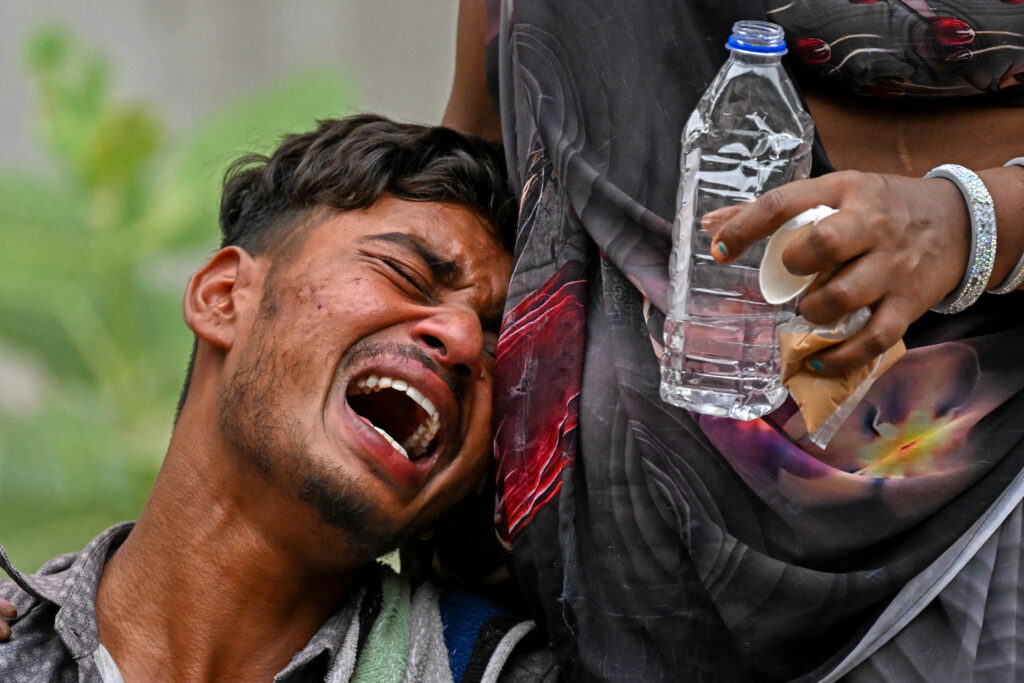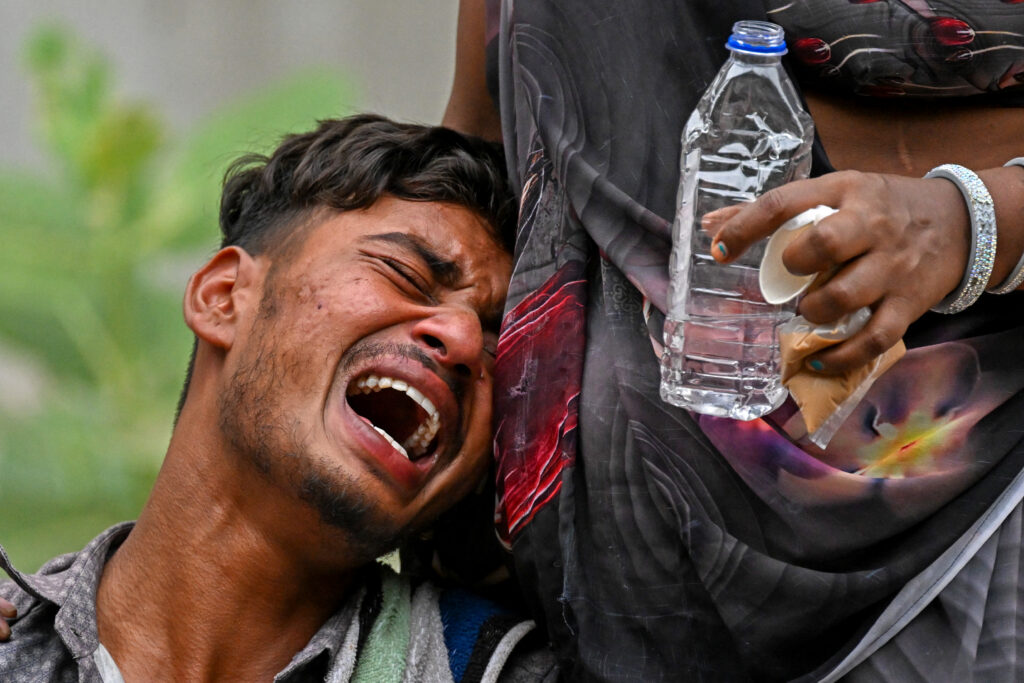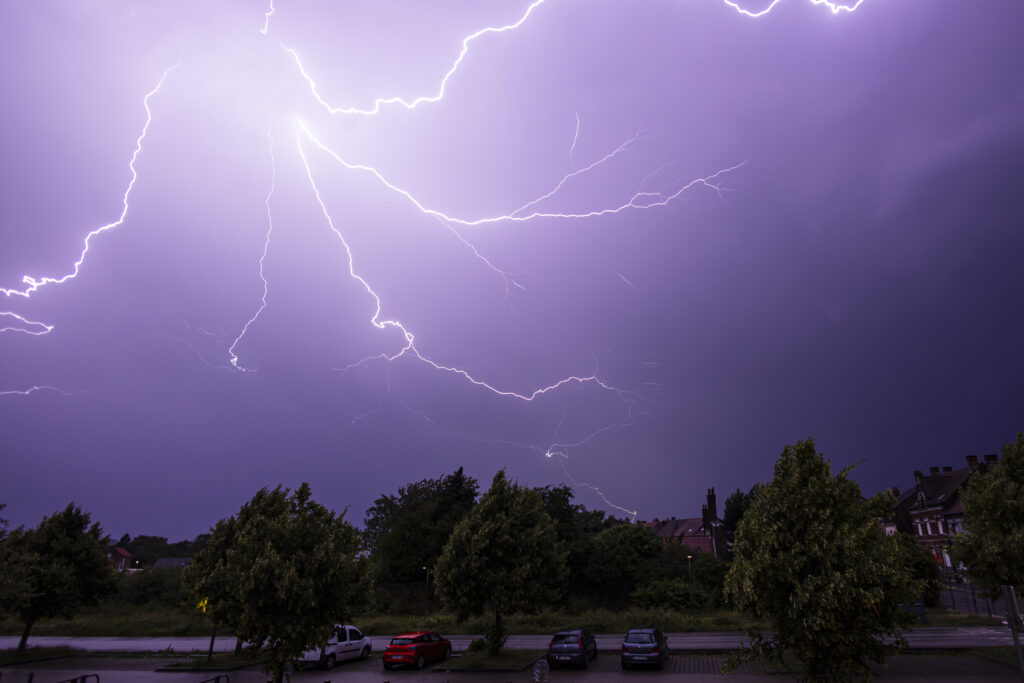Inde: des familles assistent aux obsèques des victimes du Boeing 787 d’Air India
Des familles ont assisté dimanche aux obsèques de leurs proches décédés dans l’accident du Boeing 787 d’Air India de jeudi à Ahmedabad, dans le nord-ouest de l’Inde, la pire catastrophe aérienne depuis 2014 avec au moins 279 morts.Dimanche soir, le boîte noire qui enregistre les discussions dans le cockpit a été trouvée, a annoncé dans un communiqué Dr P. K. Mishra, le principal secrétaire du Premier ministre indien Narendra Modi. Une première boîte noire, l’enregistreur des données de vol avait été retrouvée vendredi, au lendemain de l’accident. Seul un passager a survécu parmi les 242 personnes à bord du Boeing 787 d’Air India lorsqu’il s’est écrasé jeudi au décollage d’Ahmedabad, selon les derniers chiffres publiés samedi.Trente-huit habitants de la ville ont par ailleurs péri au sol quand l’appareil a explosé dans une boule de feu orange sur un quartier de la ville.Au total 47 victimes avaient été formellement identifiées à partir de l’ADN de leurs proches. Des familles ont procédé dimanche aux obsèques de leurs proches à Ahmedabad. Quelque 20 à 30 membres de la famille et amis de Megha Mehta, une kinésithérapeute qui était à bord du vol d’Air India, se sont rassemblés dans un crématorium de la ville, récitant des prières lors d’un service funéraire hindouiste.Un proche a indiqué à l’AFP, sous couvert d’anonymat, qu’il a été demandé aux familles de ne pas ouvrir le cercueil.Des témoins ont rapporté avoir vu certains corps carbonisés ou des restes humains éparpillés.”Mon cœur est très lourd” à l’idée de les restituer aux familles, a témoigné auprès de l’AFP Tushar Leuva, qui travaille pour une ONG aidant à la restitution des corps. “Comment réagiront-elles lorsqu’elles ouvriront la porte?, s’est-il interrogé devant la morgue samedi soir. Beaucoup de familles attendaient encore désespérément dimanche que les corps de leurs proches leurs soient rendus.- Aucune nouvelle -Imtiaz Ali, qui a donné dès le jour du crash, jeudi, un échantillon ADN pour que le corps de son frère Javed soit identifié, n’avait toujours aucune nouvelle des autorités hospitalières.S’il comprend que l’identification des corps nécessite du temps, il déplore l’absence de soutien de la compagnie aérienne.Dimanche soir, Air India a affirmé sur X “avoir établi un contact avec les proches et les familles de tous les passagers et membres d’équipage”. Selon la compagnie plus de 400 membres de famille sont arrivés à Ahmedabad et sont assistés par nos équipes sur le terrain, précisant qu’un soignant a été affecté à chaque famille. Le frère de Rinal Christian, 23 ans, Lawrence Christian, un trentenaire, faisait partie des passagers du Boeing 787 d’Air India devant reliant Ahmedabad à l’aéroport londonien de Gatwick. “Nous avons donné l’échantillon ADN, et même quand nous sommes allés là-bas (à l’hôpital), ils ont dit que cela prendrait 48 heures. Mais cela fait quatre jours et nous n’avons reçu aucune réponse”.Cette catastrophe aérienne est d’ores et déjà la plus meurtrière survenue dans le monde depuis celle du Boeing 777 de la Malaysia Airlines, abattu en 2014 par un missile au-dessus de l’Ukraine alors qu’il effectuait la liaison Amsterdam-Kuala Lumpur (298 victimes, dont 193 Néerlandais).- Long processus -Le vol 171 d’Air India s’est écrasé jeudi à 13H39 (08H09 GMT), moins d’une minute après son décollage à destination de l’aéroport londonien de Gatwick, selon l’aviation civile indienne.Il avait émis un appel de détresse presque aussitôt après avoir quitté le sol, avant de percuter un quartier résidentiel d’Ahmedabad situé au-delà de l’aéroport.Selon l’aviation civile indienne, le Boeing 787 avait embarqué 230 passagers – 169 Indiens, 53 Britanniques, 7 Portugais et un Canadien – et douze membres d’équipage.Seul un des passagers assis à l’avant de l’appareil a miraculeusement survécu au crash et a pu s’extirper de ses débris, blessé.”Je n’arrive toujours pas à croire comment j’ai pu sortir vivant de tout ça”, a raconté à la télévision indienne Vishwash Kumar Ramesh, un Britannique d’origine indienne de 40 ans.Les bureaux d’enquête britannique et américain ont annoncé dépêcher des équipes pour aider leurs homologues indiens en charge des investigations.De nombreux experts ont estimé qu’il était encore trop tôt pour expliquer les causes de la catastrophe.Les vidéos de l’accident postées sur les réseaux sociaux montrent l’avion prendre son envol puis, incapable de prendre de l’altitude, retomber lourdement au sol.Les autorités de l’aviation civile ont ordonné vendredi “par mesure de précaution” une inspection des Boeing 787 en service à Air India, notamment de leurs moteurs, de leurs volets (sur les ailes) et du train d’atterrissage.



